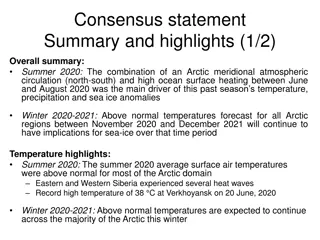2021 Summer School
Summer School covering topics on traditional values in consumer law, new modes of selling goods, digital disruption, legal responses to new commodities and services, and more. Also includes underpinning values and policies in consumer law, EU market building, and legal standards for traditional transactions.
Download Presentation

Please find below an Image/Link to download the presentation.
The content on the website is provided AS IS for your information and personal use only. It may not be sold, licensed, or shared on other websites without obtaining consent from the author.If you encounter any issues during the download, it is possible that the publisher has removed the file from their server.
You are allowed to download the files provided on this website for personal or commercial use, subject to the condition that they are used lawfully. All files are the property of their respective owners.
The content on the website is provided AS IS for your information and personal use only. It may not be sold, licensed, or shared on other websites without obtaining consent from the author.
E N D
Presentation Transcript
2021 2021 Summer Summer School Consumer s Rights and Market Regulation in the European Union School Jean Monnet Module CoRiMaR (2020-2022) University of Udine Academic Year 2020/2021 Academic Coordinator: Elisabetta Bergamini
Digital Disruption and Consumer Law From e-bay to smart contracts
Part 1 (July 22)-topics to be covered today 1.Traditional Values and Standards in consumer Law 2. New modes of selling goods (internet); legal responses
Topics to be covered today cont. 3. New commodities (digital content) and new types of (digital) services; legal responses 4. (Introduction to) new sellers, producers and market structures (hobbyists, platforms etc.); new conceptions of contract/performance itself (smart contracts) (This topic 4 will be covered in detail in Part 2 on July 27).
1. Traditional Values and Standards in consumer Law
Underpinning values/policies Protecting the weaker consumer via a need ethic, while also preserving certainty (C. Willett, Re-theorising Consumer Law (2018) 77 (1), 179- 210 https://www.cambridge.org/core/journals/cambr idge-law-journal/article/retheorising-consumer- law/F6BBD48F7113C8E62EF967AB2DCE7BBD)
Values/policies cont EU market building via harmonisation of B2C to eradicate competitive distortions, boost consumer confidence in single market and instate high level of protection e.g. see preambles to Directives 93/13/EEC (unfair terms), 99/44/EC (original Sales Directive) and now 2019/771 (the new Sales Directive, which repeals 99/44).
Legal standards for traditional transactions: contract law Goods See e.g. EU Consumer Sales Directive (99/44/EEC, now 2019/771 - https://ec.europa.eu/info/law/law- topic/consumers/consumer-contract- law/consumer-sales-and-guarantees-directive_en See UK Consumer Rights Act (CRA), and relevant national legislation in EU member states, reflecting Sales Directive rules
Goods conformity standards cont. Strict liability (SL) on front line business seller (not producer) party who supplies under a contract to the consumer This means liability on the seller of goods of poor quality, not as described, not fit for particular expressly or impliedly stated purposes; SL in that it irrelevant whether seller negligent (usually the seller is not negligent, but is still liable ).
Goods remedies Cure (repair or replacement) (EU Sales Directive, EU countries and UK CRA) Long term recission/refund or price reduction (EU Sales Directive, EU countries and UK CRA) -damages (traditional remedy in most countries available under country specific conditions) -short term refund (trad. remedy in UK-still available)
Services conformity standards No EU legislation on services in general (but see later on digital services now in Digital Content and Services Directive, 2019) Nationally, often fault based liability for services (e.g. UK CRA); i.e. supplier not liable for defective output unless shown to have acted with negligence/lack of reasonable care (N.B. huge contrast with SL for goods)
Services conformity standards cont. But, other countries-e.g. France, Germany, SL for at least some services (obligation de resultat, works contracts etc) Debates over strict versus fault liability in C. Willett, Re-theorising Consumer Law (2018) 77 (1), 179-210
Services remedies In UK, traditionally, damages and termination (common law) (these remedies typical in other countries also) Now in UK (following tradition in other European countries) also cure (repeat performance) or price reduction/refund
Rules and Values The SL standards for goods and the protective menu of remedies for goods and services can be seen as reflecting the need ethic- protecting the consumer as the more vulnerable party against stronger business actors (NB these standards and remedies often don t apply where supplier is private or where both parties are businesses).
Rules and Values cont. But less protective/more business self- interest/consumer self-reliance type values underpinning fault based approach to services arguably. Generally on rules and values see C. Willett, Re-theorising Consumer Law (above)
Legal standards/values for traditional transactions: tort/delict Strict liability in tort/delict for defective goods/products in B2C (Product Liability Directive 1985, all EU countries, UK Consumer Protection Act 1987) (G. Howells and D. Owen, Products liability law in America and Europe , in G. Howells, I. Ramsay and T. Wilhelmsson, Handbook of Research on International Consumer Law, 2ndEd (2018)) Can be seen as based on need/protective values (N.B. usually only fault/negligence/culpa where producer does not sell for profit like a business, or where the defective goods cause damage to a business).
2. New modes of selling goods (internet); legal responses Information rights Cancellation rights
New modes of selling goods (internet); legal responses cont What are these rights and why were they thought necessary in particular in response to the selling via the internet that emerged in the early part of the millennium? (G. Howells, C. Twigg-Flesner and T. (Wilhelmsson, Rethinking EU Consumer Law, Routledge, 2017, Ch. 3).
3. New commodities (digital content) and new types of (digital) services Key questions: How to classify-goods, services, or something different? What standards to set-fault or strict liability? What remedies for breach of these standards?
New models in contract law cont Consumer Rights Act 2015 http://www.legislation.gov.uk/ukpga/2015/15 /contents/enacted, Chapter 3; EU Digital content and services Directive 2019 (arts 6- 20), https://eur-lex.europa.eu/legal- content/EN/TXT/?uri=CELEX%3A32019L0770 https://ec.europa.eu/info/business-economy- euro/doing-business-eu/contract-rules/digital- contracts/digital-contract-rules_en
New models in contract law in B2C cont So what we see are UK and EU models choosing to create new category of DC (sui generis) (Like goods) strict liability and concepts almost exactly the same but with nuances for DC. So broadly DC and services to be in conformity with the contract, conformity then defined in terms of: (i) what is stipulated for expressly in the contract ( subjective ) standards on such matters as description, quantity and quality, functionality, compatibility, interoperability, fitness for particular purpose, accessories, instructions and updates.
New models in contract law cont. (ii) objective requirements of fitness for purpose, quantity, accessories, instructions, compliance with trials and reviews and updates; and also that the quality (including not only functionality, compatibility and interoperability as per the above subjective requirements, but also security and continuity) should reflect reasonable consumer expectations-this also taking into account public advertising or labelling statements by the trader, or others in previous links of the chain of transactions.
New models in contract law cont. Finally in UK and EU for DC we see (CRA and 2019 Directive) similar remedies as goods: repair, replacement, price reduction, sometimes termination (again with rules nuanced to DC context)
New models in contract law (new services) cont The EU model (the Directive) takes exactly the same approach for digital services (e.g. storage, streaming etc-see text for other examples)-the conformity and remedy rules outlined above from the 2019 Directive (arts 6-20) apply to both DC and digital services! So now in EU countries these digital services are strict liability while many other services fault based, though France, Germany etc have SL in works contracts traditionally too.
New tech: new rules to reflecting traditional values So, what we see are new rules to reflect the protection and other values that traditional protective values require in a new technical setting. Think about what I mean by this: what are the justifications from a protective, need based perspective to apply SL standards to DC and digital services (following the approach to goods)? Stronger protection? Consistency/clarity (mass produced/easy business loss spreading like goods, supplied with goods often)?
But Brexit Britain UK (see above-CRA/SGSA) has not implemented the Directive; of course it already had similar rules for DC (CRA-above), BUT NOT FOR SERVICES-SEE ABOVE, CRA- almost always fault based for all services, including still, digital services. (see above) the UK CRA remedies for services in general are in fact similar to those in the 2019 Directive applicable to DC and digital services (cure, price reduction, termination etc); though the Directive may give better rights to terminate the contract altogether -if there is time we will discuss.
Brexit Britain cont. So, is UK serious about the Withdrawal Treaty commitments to high levels of protection and fair competition (not undercutting other EU countries with different standards). Is it serious about it s own consumer policy to reduce complexity (digital content and services often supplied together);? If so they should follow EU approach.
Some key literature on the new rules on digital content and services C. Willett, Re-theorising Consumer Law (2018) 77 (1), 179-210 https://www.cambridge.org/core/journals/cambr idge-law-journal/article/retheorising-consumer- law/F6BBD48F7113C8E62EF967AB2DCE7BBD (the part on the new UK DC standards and remedies; and also the part on why there is sometimes a case for strict liability for services- this discussion was about services applied to consumer goods-does similar reasoning or some other justification apply to digital services?)
Literature cont. Carvalho: file:///C:/Users/Chris/Downloads/SSRN- id3428550.pdf Paula Giliker, Legislating on contracts for the supply of digital contents and services, February 2021, Journal of Business Law (2), 143
Literature cont. G. Howells, C. Twigg-Flesner and C. Willett Protecting the Values of Consumer Law in the Digital Economy: The case of 3D-printing in De Franceschi, Schulze, Graziadei, Pollicino, Riente, Sica, and Sirena (eds.), Digital Revolution - Challenges for Law. Data Protection, Artificial Intelligence, Smart Products, Blockchain Technology and Virtual Currencies (2019) file:///C:/Users/cwillett/Downloads/SSRN- id3283181.pdf, pp21-24 (especially the bits on contract liability)
New rules needed in tort/delict law? To maintain the underpinning values of need/protection, should there be strict liability in tort where consumers caused injury or property damage by digital content (just like with goods)? (Remember tort is needed where the seller insolvent or where the injured party did not buy under a contract e.g. family member or other 3rd party)
Tort/delict cont Is there already strict liability-is DC a product under the strict liability regime of the UK Consumer Protection Act 1987/EU Product liability Directive? The position is unclear. Proposal to clarify to avoid doubt (Evaluation of Council Directive 85/374/EEC on liability for defective products (2018) https://publications.europa.eu/en/publication-detail/- /publication/d4e3e1f5-526c-11e8-be1d- 01aa75ed71a1/language-en;
Literature on tort/delict issues G. Howells, C. Twigg-Flesner and C. Willett, Product Liability and Digital Products , in T-E Synodinou et al, EU Internet Law, Springer, 2017, ch. 8; C. Twigg-Flesner and C. Willett Protecting the Values of Consumer Law in the Digital Economy: The case of 3D-printing (above), pp21- 24 (especially the bits on tort liability) ); and more recently Howells, Twigg-Flesner, Willett, 3D Printing - Clarify Legal Principles and Concepts, forthcoming
Introducing topic 4 This topic 4 will be covered in detail in Part 2 on July 27. Another feature of the disruption brought by the digital revolution is the creation of new market players/or at least the re-allocation of roles. So we have hobbyists (not traditional businesses, more the likes of you and me) as sellers and as producers; and we have real businesses (Uber, ebay, and numerous other platforms) acting as go between agents (often not liable under traditional contract and tort rules)
Introducing topic 4 cont. This raises difficult questions for traditional liability structures and agency principles, particularly as to liability of: -Hobbyists (how to balance the need to protect the consumer with the need not to overload hobbyists with liability? At a minimum, clarify criteria) -Internet Platforms (how to fill liability gaps potentially created by hobbyists held not to be businesses-some form of network liability/insurance fund to catch the platforms, the real businesses?)
Introducing topic 4 cont. Finally we have entirely new conceptions of contract/performance itself (smart contracts) Can these be allowed at all, or at least without imposition of strict conditions in B2C relations? Does their robotic irrevocability threaten some of the core protective need- oriented values of consumer law, particularly in the context of long term relations?
For more on this. I will see you in person next week!























